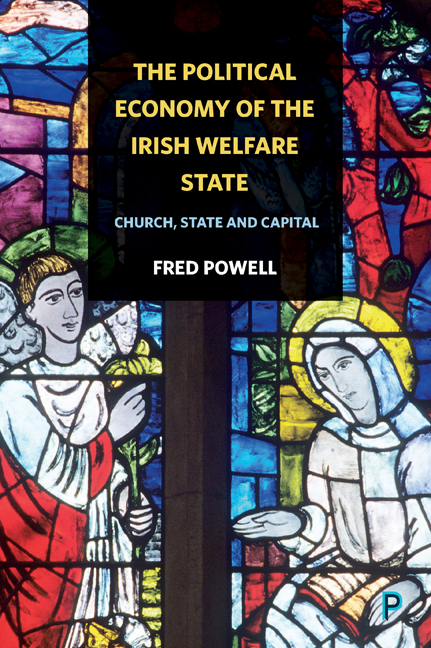Book contents
- Frontmatter
- Dedication
- Contents
- Preface
- Introduction
- one Why the welfare state matters
- two Revolution, culture and society
- three Welfare in the Free State
- four Religious nationalism, sectarianism and anti-semitism
- five The welfare state debate
- six Poverty and social inequality
- seven Liberty, gender and sexuality
- eight The marketisation of the welfare state
- nine Crisis, austerity and water
- ten Conclusion
- References
- Index
seven - Liberty, gender and sexuality
Published online by Cambridge University Press: 08 April 2022
- Frontmatter
- Dedication
- Contents
- Preface
- Introduction
- one Why the welfare state matters
- two Revolution, culture and society
- three Welfare in the Free State
- four Religious nationalism, sectarianism and anti-semitism
- five The welfare state debate
- six Poverty and social inequality
- seven Liberty, gender and sexuality
- eight The marketisation of the welfare state
- nine Crisis, austerity and water
- ten Conclusion
- References
- Index
Summary
Whatever your views on religion or on the role of the Churches, this is a hugely significant thing to say about a society like Ireland’s: that its main source of moral direction for the last 1,500 years has become, by and large, incomprehensible to the society. And remember, this is argued from inside that system of beliefs, not from the outside.
Modern thinking, on the other hand, works in an utterly different way. It accepts that different people have different ideas of perfection, and that no agreement on what is absolutely and permanently ideal is possible. It looks to build a morality, therefore, on a minimal agreement about what is necessary for people to live together without tyranny.
Fintan O’Toole (1994: 146-7)Modernisation produced a collision of incompatible ways of life in Ireland. The resulting ‘cultural collisions’, as Keohane and Kuhling (2004) have put it, between local and global, modern and traditional, religious and secular, urban and rural – and most significantly personal and political – have arguably produced a profound cultural transition, based on a search for liberty. In the final years of de Valera's Ireland, the Church-State alliance, legitimated by a conservative narrative of the Irish Revolution, began to be challenged by a progressive counter-narrative in the form of new social movements. The rise of new social movements during the 1960s and 1970s unleashed demands for greater personal liberty in the form of a relaxation of moral codes (notably in relation to the control of sexuality), of censorship and of restrictions on personal freedom. This chapter explores the role of new social movements as agents of change and transformation, and examines how they contributed to a more open society.
Modernisation, identity and modernity
The project of modernisation involved a reimagining of Irish identity. In 1977, The Crane Bag, a new journal edited by philosopher Richard Kearney and educationalist Mark Patrick Hederman, sought to undertake the intellectual task of interpreting the complex relationship between modernisation, modernity and cultural identity. It tackled myths about Irish identity. For example, Liam De Paor (1979: 660), in an article in The Crane Bag, observed:
Looking back, we can now see that de Valera's Ireland was quite impossible because the world's technological and other revolutions simply will not permit the necessary measure of isolation.
- Type
- Chapter
- Information
- The Political Economy of the Irish Welfare StateChurch, State and Capital, pp. 193 - 224Publisher: Bristol University PressPrint publication year: 2017



